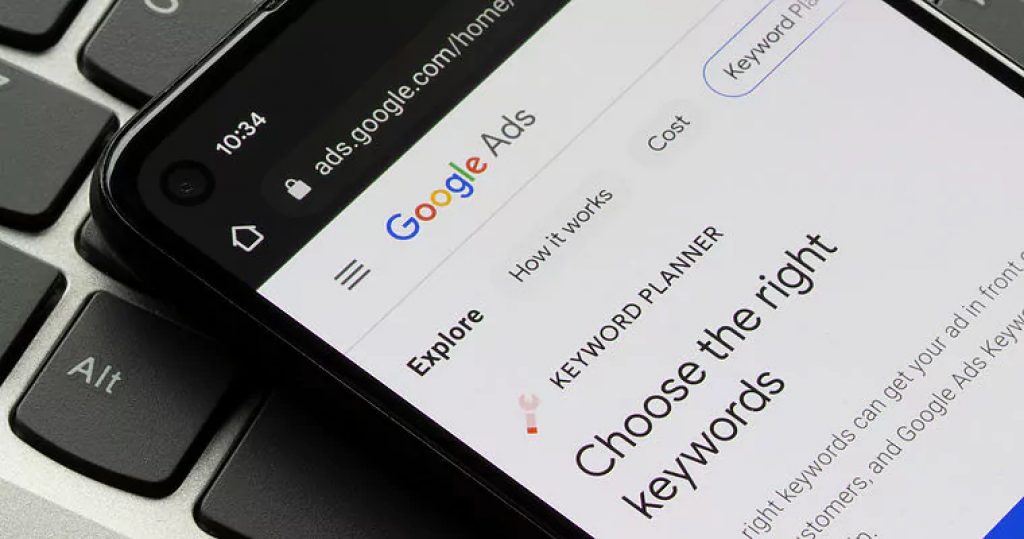
A person learns about the importance of words in 7th grade, but it is when they become an SEO professional that they know the importance of Keyword Research. And keyword research is highly crucial for SEO purposes.
And you’ll learn exactly that – ‘importance of Keyword Research in SEO’ – in this post.
But before we talk about the importance of keywords in SEO, let us talk about the types of keywords. One can determine keywords in three ways: keywords by length, keywords by search intent, and industry-specific keywords.

Keywords by Length
Keywords by length include three types of keywords – long tail keywords, short-tail keywords, and mid-tail keywords.
1. Long Tail Keywords
Long Tail Keywords like ‘best bookstores in London’ or ‘coffee shop near me’ are a few of those keywords which people use to get the exact results. These are the type of keywords people use when they are going to take action.
These might not have a high volume, but betting on them is profitable for business. For example, if a person has gone on a trip and is looking for a coffee shop, the first one to pop on this keyword will be clicked and might visit it.
Long tail keywords bring high conversion rates and get more traffic to websites/pages.
2. Short Tail Keywords
Short Tail Keywords have high search volume, and it is difficult to rank on such keywords. And the intent behind such keywords is unclear as well.
Supposedly, if one is simply typing ‘Web Development’ in the search engine, then the intent isn’t clear as to what exactly the user is looking for. They could be looking for a Web Development definition or Web Development Step by Step Guide.
They could also be looking for a company that provides web development services.
But it is believed that if the content is ranking higher on short tail keywords, then the content is of good quality. Thus, the experts always aim to organize their content on short-tail keywords.
3. Mid Tail Keywords
Mid Tail keywords are longer than short-tail keywords and shorter than long-tail keywords, for example, ‘yoga health benefits.’ They generally consist of two to three words, and their search volume is moderate to high, depending on the keyword.

Keywords by Buyer’s Intent
Keywords by buyer’s intent include four types of keywords – informational, navigational, commercial as well as transactional keywords.
1. Informational
Informational keywords are the ones where the buyer intends to gain some knowledge. Thus, they start with how, what, or where. Betting on these kinds of keywords can rank the page because to sell the product, you must provide information about the product and how it will be beneficial to the user.
2. Navigational
The navigational keyword is used when the user has an idea about what product he is looking for but needs more information about it. He has a specific item in mind, but he needs to compare it with other brands and substitute items before buying it.
3. Commercial
Commercial keywords are used when the person knows that he is going to buy furniture from IKEA or Pottery Barn. Still, he needs to research it thoroughly as to when he could buy it, from which store, if it has any offer going on, product details, if he wants to buy something extra with it, etc.
4. Transactional
Transactional Keywords are the ones that are targeted at the people who hold buying capacity. It means that post comparing prices, qualities, ingredients, and details, they are going to be converted into actual buyers and not just remain potential customers.

Industry Specific Keywords
Industry-specific keywords include four types of keywords – market-centric, customer-centric, geo-centric as well as product-centric.
1. Market – Centric
Market-centric keywords are also known as field-specific keywords. For example, an apparel brand will target keywords like silk, cotton, pashmina, jeans, cashmere sweater, or black knee-length dress.
Similarly, if we talk about the food industry, the keywords like burger, pizza, croissant, etc will be targeted. Market-centric keywords have a broader spectrum but are full of potential.
2. Customer – Centric
Customer-centric keywords are the ones used for a specific set of customers based on different criteria like age, gender, spending capacity, likes & dislikes, etc. the best example for it is ‘Plus size jeans for XL people.’
These keywords are context-based and are used to appeal to a specific group of people who know what they want and will buy because they need those things. It is not an impulse buy, their intent is clear, and their buying capacity is higher.
3. Geo – Centric
Geo-centric keywords are perfect for local businesses. People who live in a specific area or city, or town need to know where they will be able to find the particular product, and that’s when they type in geo-specific keywords. For example, ‘provision store in XYZ area’ or ‘chemist shop in ABC town near me.’
4. Product – Centric
Product-centric keywords target a specific product like ‘ice cream shop around the corner’ or ‘best ice cream’ etc. This is specifically useful for a business that deals with fewer products and not for an e-commerce store that deals with multiple genres of products.
And there are various other keywords as well, but they fall mainly under these categories. However, every kind of keyword is important, but one must know which one to choose from for better SEO results.

Why is keyword research necessary?
Keyword Research is vital for SEO purposes because:
- Keyword Research empowers SEO. It will rank your website higher in search engines and will increase the credibility of the website, making it more clickable and contactable.
- When the content writers are provided with the keywords beforehand, it inspires great content. As compared to the keywords that need to be inserted at the later stage, feeling like they are stuffed.
- When the correct keywords are distributed evenly with rich content, the performance of the website is sure to be fueled. It will attract more visitors, generate more traffic, and get more conversions.
- People ask Google the most intimate of questions to Google as they do their friends. Thus, keyword research will help them find quicker answers should your website provide one.
- Putting relevant keywords in a manner that doesn’t feel like they are stuffed will put your website above the competitors. A website that pops up first gets clicked, and its popularity spreads accordingly. And this is all possible because of keyword research.

Conclusion:
Believe it or not, the keyword was, is, and will always remain important. If you need assistance with keyword research and SEO services, click on top SEO agencies like Webcapitan that provide SEO services, and they will help you out with all kinds of SEO services, including keyword research.




